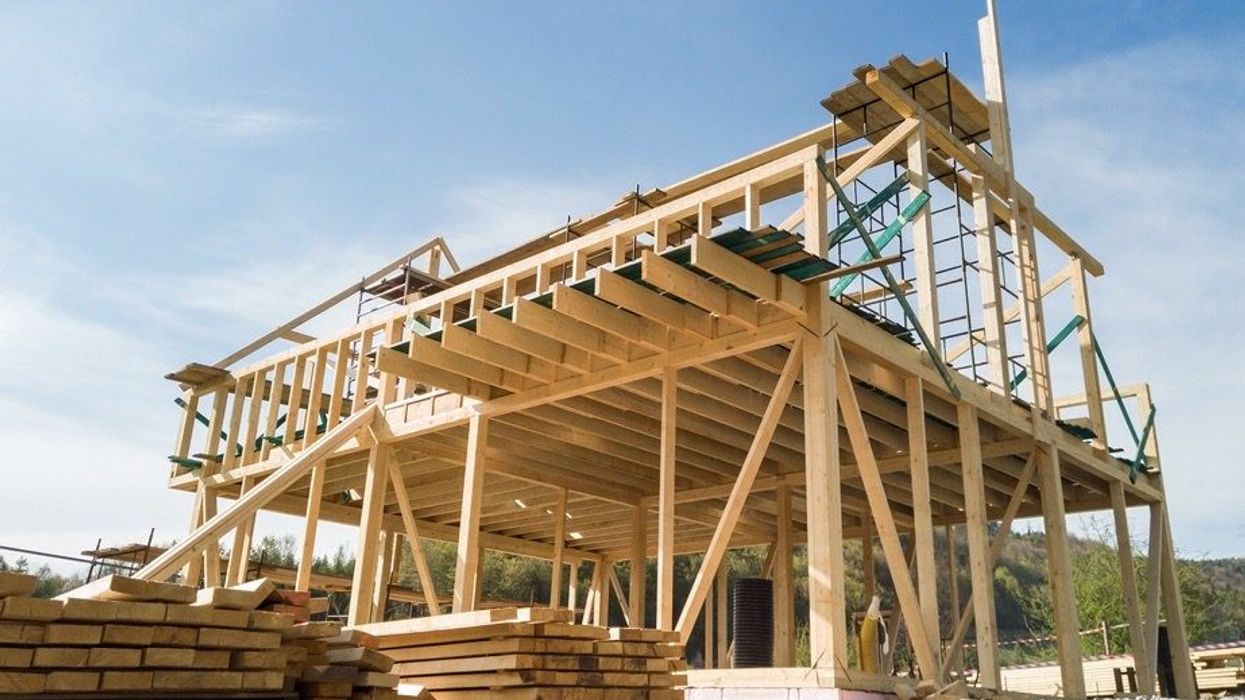To commemorate Canada’s National Day of Mourning, which remembers those who have died or been injured in workplace accidents, the Residential Construction Council of Ontario (RESCON) reaffirmed its commitment to health and safety, but says that more can be done.
“During the pandemic, government, employers and unions worked in unison to ensure Ontario’s construction industry was able to continue working and build much-needed housing and infrastructure,” RESCON President Richard Lyall said. “As we reflect on those who have died or suffered an injury or illness due to work, it is critical that we keep that momentum going and continue to work together on ways to better identify and eliminate safety hazards in the future.”
“Today, on the National Day of Mourning, we remember and honour every Canadian worker who has been killed or injured in the workplace. Our thoughts are with all those who live with the pain of these tragedies every day," stated Prime Minister Justin Trudeau in a release.
“One injury or death in the workplace is too many. To help prevent future tragedies from taking place, the Government of Canada works closely with employers, employees, unions, and other stakeholders and partners to educate and raise awareness about work-related dangers. We will continue to help keep Canadians safe in the workplace, and beyond."
Part of that is fostering more welcoming job sites. Construction sites are obviously very hazardous, but workers sometimes suffer in other ways too. In recent years, however, the stigma around mental health has begun dissipating and workplaces, including construction sites, are increasingly offering workers support that didn’t exist a decade ago.
Dunpar Homes, which marked National Day of Mourning by having its workers stand solemnly for a few moments of quiet reflection, pays employees who take mental health days and encourages them to seek help without fear of becoming stigmatized or having their hours cut.
“We’ve had a few workers on our sites who have had some mental health issues and we’ve done what we could to support them and make sure they got that help. A lot of the time, our site supervisors and coordinators are almost a frontline defence when it comes to that kind of stuff because they’re interacting with the workers on a daily basis and they can tell if something is off, or if they need a chat, someone to talk to, a day off,” said Taylor Rogers, Project Director at Dunpar Homes.
“We support all of our workers in taking whatever time they need. We find a lot of the time workers are scared to take time off because they need their wages, but a lot of the time we’ll still pay them for the day and make sure they have money coming in while they go and see someone. We’ve done that a few times. If someone has to leave early for a doctor’s appointment, physical or mental, we’ll pay them the full day because we want them to not be afraid to get that help.”
Rogers added that both mental and physical health ailments have traditionally been stigmatized on construction sites, but he has noticed a marked change in the last few years. No longer are workers encouraged to work through pain like they once were; instead, they’re encouraged to seek therapy, physical or otherwise.
Upon entering Dunpar’s construction site trailers, workers are met with a health and safety board, much of which is derived from the Ministry of Labour’s ‘Green Book,’ which covers safety regulations for the province’s construction industry. Rogers says Dunpar goes beyond its specifications to ensure site workers are aware of hazards at all times.
“The Green Book is known as the ‘book of mistakes’ because it grows and grows based on new incidents, and that’s why our health and safety board is the first thing you see when you walk into our trailers,” he said. “There are a lot of different hazards on a construction site. You see it on news all of the time, an industrial accident which covers construction and could be a forklift injury or something of the like. Most fatalities you see on news are, unfortunately, in the construction industry just because of the inherent dangers that come with confined spaces and moving vehicles and working at heights.”





















